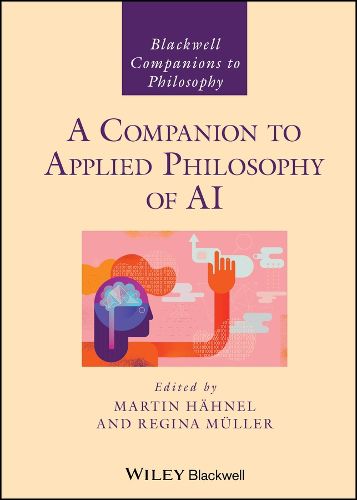Readings Newsletter
Become a Readings Member to make your shopping experience even easier.
Sign in or sign up for free!
You’re not far away from qualifying for FREE standard shipping within Australia
You’ve qualified for FREE standard shipping within Australia
The cart is loading…






A comprehensive guide to AI's ethical, epistemological, and legal impacts through applied philosophy
Inartificial intelligence (AI) influences nearly every aspect of society. A Companion to Applied Philosophy of AI provides a critical philosophical framework for understanding and addressing its complexities. Edited by Martin Haehnel and Regina Mueller, this volume explores AI's practical implications in epistemology, ethics, politics, and law. Moving beyond a narrow ethical perspective, the authors advocate for a multi-faceted approach that synthesizes diverse disciplines and perspectives, offering readers a nuanced and integrative understanding of AI's transformative role.
The Companion explores a broad range of topics, from issues of transparency and expertise in AI-driven systems to discussions of ethical theories and their relevance to AI, such as consequentialism, deontology, and virtue ethics. Filling a significant gap in the current academic literature, this groundbreaking volume also addresses AI's broader social, political, and legal dimensions, equipping readers with practical frameworks to navigate this rapidly evolving field.
Offering fresh and invaluable insights into the interplay between philosophical thought and technological innovation, A Companion to Applied Philosophy of AI:
Features contributions from leading philosophers and interdisciplinary experts Offers a unique applied philosophy perspective on artificial intelligence Covers diverse topics including ethics, epistemology, politics, and law Encourages interdisciplinary dialogue to better understand AI's profound implications for humanity
A Companion to Applied Philosophy of AI is ideal for undergraduate and graduate courses in applied philosophy, AI ethics, political theory, and legal philosophy. It is also a vital reference for those working in areas including AI policy, governance, and interdisciplinary research.
$9.00 standard shipping within Australia
FREE standard shipping within Australia for orders over $100.00
Express & International shipping calculated at checkout
Stock availability can be subject to change without notice. We recommend calling the shop or contacting our online team to check availability of low stock items. Please see our Shopping Online page for more details.
A comprehensive guide to AI's ethical, epistemological, and legal impacts through applied philosophy
Inartificial intelligence (AI) influences nearly every aspect of society. A Companion to Applied Philosophy of AI provides a critical philosophical framework for understanding and addressing its complexities. Edited by Martin Haehnel and Regina Mueller, this volume explores AI's practical implications in epistemology, ethics, politics, and law. Moving beyond a narrow ethical perspective, the authors advocate for a multi-faceted approach that synthesizes diverse disciplines and perspectives, offering readers a nuanced and integrative understanding of AI's transformative role.
The Companion explores a broad range of topics, from issues of transparency and expertise in AI-driven systems to discussions of ethical theories and their relevance to AI, such as consequentialism, deontology, and virtue ethics. Filling a significant gap in the current academic literature, this groundbreaking volume also addresses AI's broader social, political, and legal dimensions, equipping readers with practical frameworks to navigate this rapidly evolving field.
Offering fresh and invaluable insights into the interplay between philosophical thought and technological innovation, A Companion to Applied Philosophy of AI:
Features contributions from leading philosophers and interdisciplinary experts Offers a unique applied philosophy perspective on artificial intelligence Covers diverse topics including ethics, epistemology, politics, and law Encourages interdisciplinary dialogue to better understand AI's profound implications for humanity
A Companion to Applied Philosophy of AI is ideal for undergraduate and graduate courses in applied philosophy, AI ethics, political theory, and legal philosophy. It is also a vital reference for those working in areas including AI policy, governance, and interdisciplinary research.